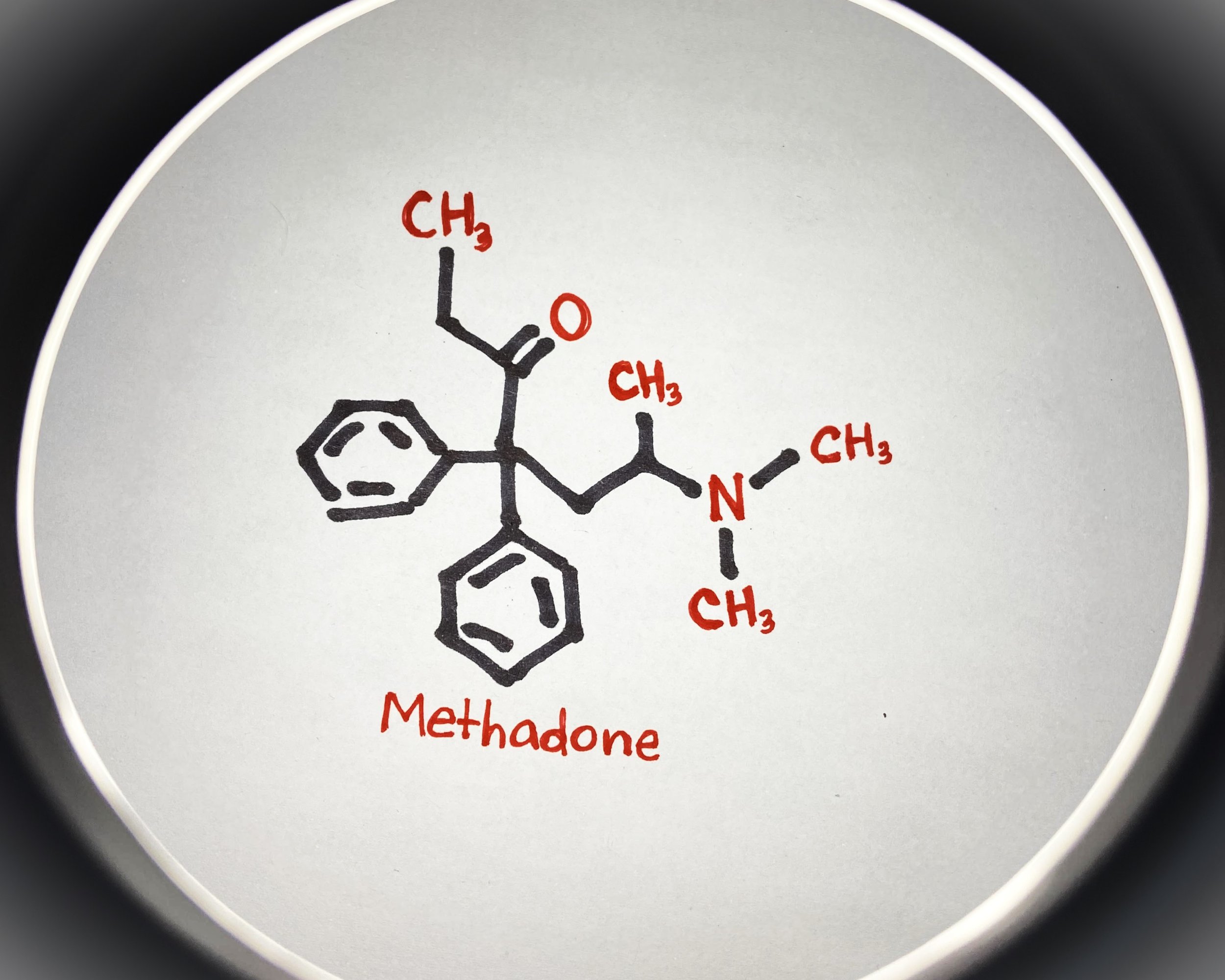
Events

New Approaches to Tobacco Smoking Cessation Among People Who Use Drugs
RSVP today to join us!
Featuring
[Moderator] Jessica Shortall, Safer From Harm Coalition, R Street Institute
Rachel Simon, MD, Clinical Assistant Professor, Medicine, New York University Grossman School of Medicine; Primary Care and Addiction Medicine Physician, Bellevue Hospital Opioid Treatment Program
Abby Coulter, Methadone Patient Advocate and Reform Specialist; Founder, Medication Assisted Treatment Support & Awareness (MATSA)
Overview
Most people who use drugs also smoke tobacco. Only 12 percent of U.S. adults smoke cigarettes, while more than 75 percent of people with opioid use disorder smoke. Tobacco-related disease causes more deaths among people who use drugs than drug use itself: More than half of people in treatment for substance use disorder will die from tobacco-related disease. And quitting smoking is exceedingly difficult, especially for people who use drugs.
Despite the pressing need for novel approaches to reduce the harms of tobacco use among people who use drugs, tobacco harm reduction—including switching to lower-risk consumer products like e-cigarettes—has not been widely adopted by clinicians and practitioners.
But today, some clinicians and practitioners who work with people who use drugs are integrating patient-centered tobacco harm reduction into their approaches. This panel will showcase two such people, who will discuss the current evidence about reduced-risk nicotine products, how they decide whether or when to explore tobacco harm reduction with patients and clients, and how people who use drugs respond to these concepts.

Breaking Through: Promoting HIV Harm Reduction to Skeptical Audiences
Featuring
[Moderator] Chelsea Boyd, Resident Research Fellow, Integrated Harm Reduction, R Street Institute
Toni Newman, Director, Coalition for Justice and Equality Across Movements, and Acting Director, Training Center to End the Epidemic, NMAC
Sen. Megan Hunt, Nebraska Unicameral Legislature
Katherine Wells, Director of Public Health, City of Lubbock, Texas
Overview:
How can we persuade the public and reluctant policymakers to continue the work to end the domestic HIV epidemic? The federal goal of 90 percent reduction of new HIV infections in the United States by 2030 cannot be achieved without increased focus on communities that are most at risk. But this unevenly distributed risk can lead to an “it won’t happen to me” mindset and to deprioritization of the issue among the general population and policymakers. Join us for a conversation with people on the frontlines of the work to end the HIV epidemic. We’ll hear how they persuade skeptical audiences that HIV still matters and why prioritizing populations most vulnerable to HIV infection results in good outcomes for all of us.

Methadone Diversion: Separating Fact from Fiction
Featuring:
[Moderator] Stacey McKenna, Resident Senior Fellow, Integrated Harm Reduction, R Street Institute
Aaron Ferguson, Regional Outreach Manager, Community Medical Centers (an opioid treatment program)
Dr. Sam Manages, Medical Director and Behavioral Health and Addiction Physician, Pines Health Services
Dr. Paul Joudrey, Assistant Professor of Medicine, Center for Research on Health Care, University of Pittsburgh
Noa Krawczyk, Assistant Professor, Department of Population Health, NYU Grossman School of Medicine
Overview:
How should the public and policymakers view methadone—and methadone diversion—in the context of the larger overdose crisis?
Methadone is a “gold standard” treatment for long-term opioid use disorder (OUD), with proven, lifesaving success rates greater than non-medication treatment options. But it is highly regulated, with myriad barriers to access that prevent many people from pursuing treatment. As the national conversation on expanding methadone access gets louder, we must separate fact from fiction.
Congress is currently considering legislation to decrease methadone regulation. Opponents say these efforts will increase diversion—the sharing or sale of methadone to a person to whom it was not prescribed—and view this risk as a reason not to change the status quo. However, many experts in OUD believe methadone diversion happens precisely because people can’t access the medication through formal channels. In this panel, several such experts will argue that diversion concerns must be balanced against the significant potential for methadone to save more lives, make communities safer, and help more people regain control of their lives through long-term recovery.

Making Syringe Services Work In Red States
Syringe services programs (SSPs), once known as “needle exchanges,” are one of the oldest and most evidence-based forms of harm reduction. By providing sterile syringes to people who inject drugs, SSPs prevent the transmission of HIV and hepatitis C; build trust with people who use drugs; and create deep community linkages with health care, counseling, recovery, and other essential services.
SSPs deliver short- and long-term value to people’s lives as well as to public health, communities, first responders, and public budgets. Numerous states have authorized SSP operations in various ways, but there is more work to be done. In many states, SSPs are alive and well; in others, they operate in a legal gray area. And some states still have not authorized SSPs to provide these life-saving services and tools.

Pathways to Smoking Cessation
While risks associated with smoking cigarettes have been well-documented, many individuals who want to quit smoking have great difficulty in doing so.
Reduced-risk products (RRPs) such as electronic nicotine delivery systems (otherwise known as vapes or e-cigarettes), heated tobacco products, and oral tobacco/nicotine have all been touted as safer alternatives to cigarettes. Both research and real-world experience indicates these products can help individuals with smoking cessation. But how?

The Case for Expanded Methadone Access
Methadone is one of the most effective forms of treatment for opioid use disorder, cutting overdose risk in half and proving more successful in long-term recovery than abstinence-only approaches. Unfortunately, access to this medicine is uniquely restricted in the United States.

Why Integrated Harm Reduction?
Why don’t we treat people who use alcohol, cigarettes, cannabis, and/or opioids the same when it comes to having the power and tools to keep themselves safer from harm?

Red Tape Podcast, Episode 3 – Ban it All!
Don’t like or understand something? Just ban it!
Harm Reduction 101: Clearing the Smoke with Tobacco Harm Reduction
Everyone engages in behaviors that can harm their health, and many of us take measures to decrease those health risks—even things like wearing a seatbelt or limiting alcohol consumption count toward harm reduction. Harm reduction is the idea that abstinence-only approaches do not work well at the population level and that there are strategies available to make risky behaviors less harmful. When it comes to tobacco, adult smokers may reduce harms associated with combustible tobacco products by switching to less dangerous nicotine delivery systems such as e-cigarettes or snus.
Featuring:
[Moderator] Chelsea Boyd, Fellow, R Street Institute
Michael Pesko, Associate Professor, Georgia State University
Helen Redmond, Senior Editor and Multi-Media Journalist, Filter
Pritika Kumar, Senior Fellow, R Street Institute
Practical Not Magical: Harm Reduction and Public Health
Silver bullets. Big bangs. Miracles. In the search for answers to our pressing problems — from climate change to global pandemics — people have hoped for magical solutions that would wish them away with the snap of a finger. In reality, we need practical solutions that often require picking the least bad option. This forum discusses and debates practical approaches grounded in experience to applying risk management and harm reduction techniques to tough problems.
Featuring:
[Moderator] Richard Crespin, Chief Executive Officer, CollaborateUp
Mazen Saleh, Policy Director, Integrated Harm Reduction
Kye Young, Vice President of Partnerships and Development, Foundation for Climate Restoration
Lt. Diane Goldstein, Executive Director, Law Enforcement Action Partnership
Dr. Jallal Toufiq, Head of the National Centre for Drug Abuse Prevention and Research in Morocco
Event: Harm Reduction 101
Everyone engages in behaviors that can harm their health, and many of us take measures to decrease these health risks. If you wear your seatbelt while driving or limit your alcohol consumption, you are engaging in harm reduction. Harm reduction is the idea that abstinence-only approaches do not work well at the population level and that there are strategies available to make risky behaviors less harmful.
Experts from several areas of harm reduction discussed the benefits and challenges associated with harm reduction approaches, policies that can advance harm reduction, their personal experiences with harm reduction services and the importance of providing a range of harm reduction services to the public. Panelists spoke to the importance of harm reduction for illegal drug use, sexual health, tobacco use and more.
Featuring:
Damon Jacobs, Associate Fellow, R Street Institute
Lisa Raville, Executive Director, Harm Reduction Action Center
Pritika Kumar, Senior Fellow, R Street Institute
Brendan Cox, Chief (Ret.), Albany Police Department
Event: E-cigarettes, flavors and harm reduction: finding common ground
Congress recently banned the sale of tobacco products to anyone under 21, and e-cigarette regulation continues to be a hot topic on Capitol Hill. Some members have called on the Food and Drug Administration (FDA) to remove all flavored tobacco products from the market. What impact would a flavor ban have on overall public health? What role do e-cigarettes play as a harm reduction tool? Our panel of distinguished experts discussed the current state of play surrounding e-cigarette regulation and tobacco harm reduction.
Featuring:
[Moderator]Mazen Saleh, Associate Vice President, R Street Institute
Guy Bentley, Director of Consumer Freedom Research, Reason Foundation
Chelsea Boyd, Fellow, Harm Reduction, R Street Institute
